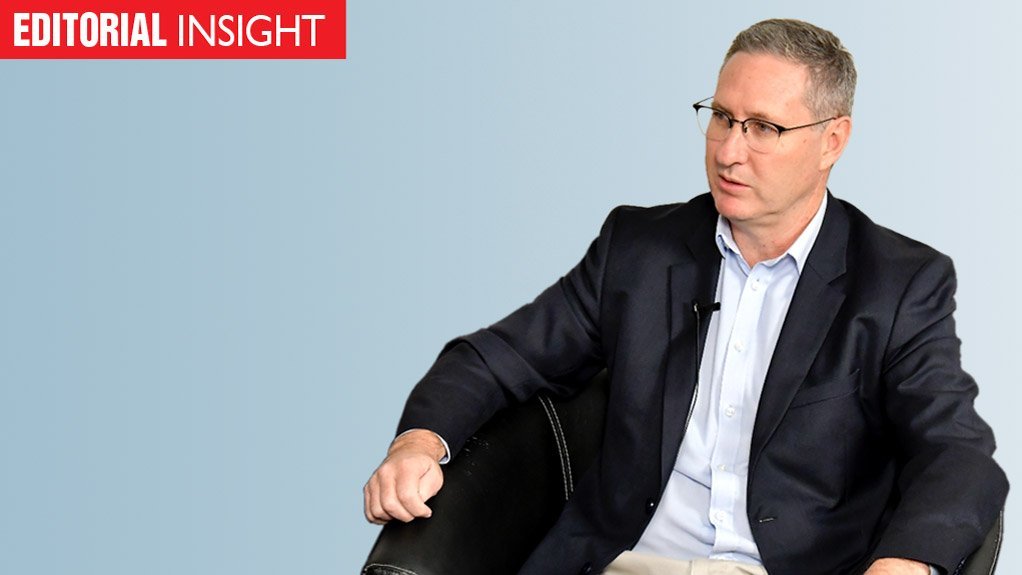Sustaining Growth
It is now widely accepted that we live in a misinformation era – one where it has become acceptable, even fashionable, to be anti-science. Scientific consensus is making way for conspiracy theories, and scientists are often treated with far greater scepticism than social media influencers.
To be sure, rejecting science is nothing new, with numerous historical examples. Everything from the church’s persecution of Galileo Galilei for his support for the idea that the Earth orbits the Sun, to opposition to the smallpox vaccine in the late eighteenth century (a trend that has contemporary echoes), to the fringe belief, made popular by a former South African President, that HIV did not cause Aids.
What is new, however, is the ability to disseminate, popularise, globalise, and politicise such messages at the speed of light and to amplify their impact by using the digital communication platforms now available.
In such a context, the 2025 Sveriges Riksbank Prize for Economic Sciences in Memory of Alfred Nobel provides an important reminder of the centrality of scientific innovation to sustained growth; a phenomenon that the work of the prize winners shows is neither guaranteed nor the historical norm.
This year’s prize was shared between economic historian Joel Mokyr and economic theorists Philippe Aghion and Peter Howitt.
Mokyr has been recognised for his description of the mechanisms that enable scientific breakthroughs to support growth, including the importance of a society being open to new ideas, so that incumbent interests do not prevent progress.
Aghion and Howitt have been acknowledged for their mathematical model that shows how technological advancement leads to sustained growth and explains the transformative process of creative destruction, whereby companies and jobs continually disappear and are replaced.
There is a recognition in this work that sustained growth does not equate to sustainable growth, and that innovations can have significant negative side effects. However, Mokyr argues that such negative effects sometimes prompt the uncovering of solutions to problems, making technological development a self-correcting process.
Such a message seems particularly apt for this moment, where the threat posed by climate change is increasingly visible, and those who rightfully fear its destructive consequences are arguing for a de-growth agenda. Such arguments have probably helped fuel current resistance to the innovations that have emerged to mitigate the climate threat.
But in truth, the resistance is rooted in what some call anti-scientism, and a desire to protect incumbents from the forces of creative destruction. This can be seen in the restrictions being imposed on academic freedom, and in moves to entrench the power of those companies that have dominated energy markets for more than a generation.
That said, the resistance is not universal, with the process of creative destruction arguably visible in the emergence of electro states that have grasped the reality that clean electricity is the fuel of the future; one that will be increasingly digital in nature.
The question for South Africa is whether we will be one of them.
Article Enquiry
Email Article
Save Article
Feedback
To advertise email advertising@creamermedia.co.za or click here
Press Office
Announcements
What's On
Subscribe to improve your user experience...
Option 1 (equivalent of R125 a month):
Receive a weekly copy of Creamer Media's Engineering News & Mining Weekly magazine
(print copy for those in South Africa and e-magazine for those outside of South Africa)
Receive daily email newsletters
Access to full search results
Access archive of magazine back copies
Access to Projects in Progress
Access to ONE Research Report of your choice in PDF format
Option 2 (equivalent of R375 a month):
All benefits from Option 1
PLUS
Access to Creamer Media's Research Channel Africa for ALL Research Reports, in PDF format, on various industrial and mining sectors
including Electricity; Water; Energy Transition; Hydrogen; Roads, Rail and Ports; Coal; Gold; Platinum; Battery Metals; etc.
Already a subscriber?
Forgotten your password?
Receive weekly copy of Creamer Media's Engineering News & Mining Weekly magazine (print copy for those in South Africa and e-magazine for those outside of South Africa)
➕
Recieve daily email newsletters
➕
Access to full search results
➕
Access archive of magazine back copies
➕
Access to Projects in Progress
➕
Access to ONE Research Report of your choice in PDF format
RESEARCH CHANNEL AFRICA
R4500 (equivalent of R375 a month)
SUBSCRIBEAll benefits from Option 1
➕
Access to Creamer Media's Research Channel Africa for ALL Research Reports on various industrial and mining sectors, in PDF format, including on:
Electricity
➕
Water
➕
Energy Transition
➕
Hydrogen
➕
Roads, Rail and Ports
➕
Coal
➕
Gold
➕
Platinum
➕
Battery Metals
➕
etc.
Receive all benefits from Option 1 or Option 2 delivered to numerous people at your company
➕
Multiple User names and Passwords for simultaneous log-ins
➕
Intranet integration access to all in your organisation





















